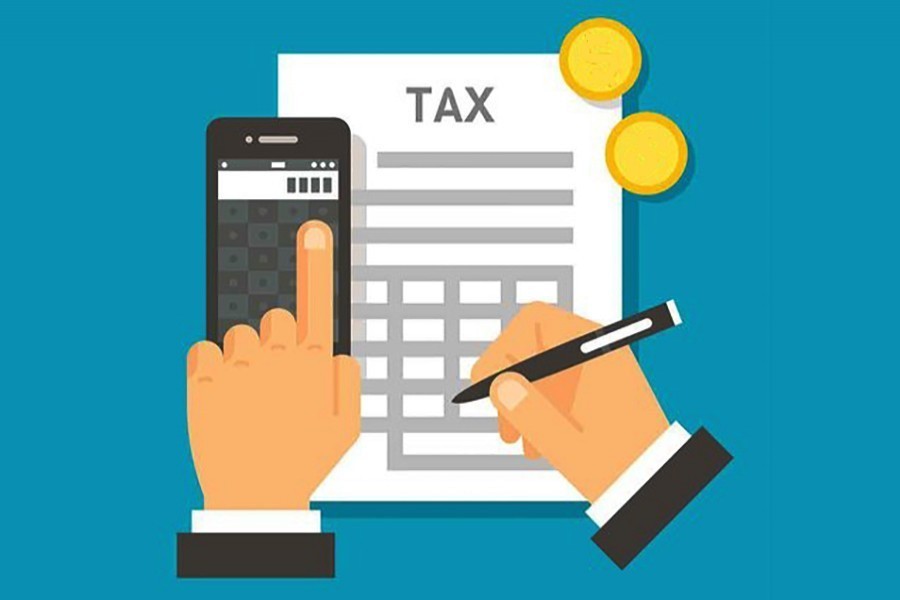
Published :
Updated :

That tax revenue collection would suffer during the current financial year was a foregone conclusion. Though the economic activities during the final four months of the last fiscal year (FY) took the main brunt of the pandemic, the first half of the current FY did also witness a slower recovery. Hence the government's tax revenue earnings were lower than normal during that period. The revenue mobilisation from two main sources---value-added tax and income tax---declined notably between July and January of this FY.
The tax revenue receipt during the first seven months of the FY 2020-21, according to a report published in this paper last Friday, was nearly 22 per cent less than the target set by the National Board of Revenue (NBR). The tax revenue earnings during the period, however, were 4.55 per cent higher than that of the corresponding period of the previous FY. Such year-on-year growth in revenue receipt had been a routine fiscal development for the last decade barring the last FY when the NBR earned a lower amount than that of the previous FY.
Yet tax officials appear to be satisfied, to a certain degree, with their achievement during the first seven months of this FY. They have done better than the previous FY when the pandemic is still hurting the economy. The truth is the tax revenue target is a highly ambitious one---44 per cent higher than that of the last FY--- and the people at the finance ministry and taxmen knew it while putting the tax-related numbers in the budget documents. Incorporating bloated figures into the budget has become more of a deliberate trend in the country in recent years.
A lower tax revenue growth is supposed to create problems for the government in the matters of bankrolling budget. But downsizing of the annual development programme (ADP) because of the poor rate of execution of development projects and increased non-bank borrowing---through the sale of national savings tools--- would largely compensate for the lower tax revenue generation.
Such compensation, however, comes with a cost, which is considered a burden on the economy. The government has to pay interest at a rate higher than the prevailing market rate on savings tools. The higher the sale bigger the interest burden. The government, however, has a far cheaper option---borrowing from banks. But the government's interest in this particular source is found subdued lately.
Tax revenues should get preference over other sources. Unfortunately, the government has been lagging far behind in tapping that source. NBR has made progress in recent years, no doubt, but not up to the desired level because of shortcomings of various types. That is why the country's tax-GDP ratio is still one of the lowest in the region. The number of electronic tax identification holders has gone up in recent years, but not the earnings from individual taxpayers, proportionately. Similarly, evasion of VAT is very high despite the enforcement of the new VAT law.
The target set in the budget for tax revenue earnings is very much feasible provided the tax machinery is adequately geared up and eligible taxpayers are motivated to pay tax. More importantly, the taxpayers need to develop a feeling that their tax money is being utilised properly and not wasted in any form.


 For all latest news, follow The Financial Express Google News channel.
For all latest news, follow The Financial Express Google News channel.